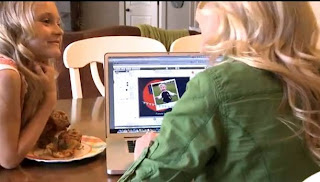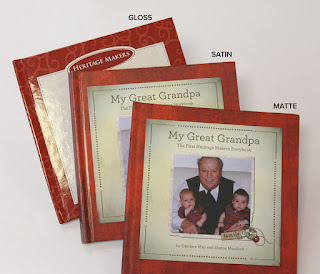I know—it seems a bold statement. I can almost see the suspicious look on your face. I’m sure you’re thinking, “Can you really tell me in one blog post the best thing I can do for my kids?” Actually, I can. It’s something simple with powerful, lasting effects, and the great news is that it’s something you already have. This Best Thing has been proven in studies, too.
So let me tell you how I first learned about this Best Thing, starting with a little background.
I’ve been a journaler, photo-taker, and photo-preserver for as long as I can remember. I made it my business in 2005, and in 2009 I started blogging about it. In 2017 I was invited to be a regular contributor for a new blog where I’d write about family, photos, memories, and connections. Because of my own personal background and passion, I knew already that photos and memories (“scrapbooking,” if you will) was really good for you. I knew it was good for kids and families, that it increased connections between people, and that it was a therapeutic and cathartic activity that was a known stress-reliever. There was a period of about a year and a half where I was writing two blog posts every week, so I started doing reading and research beyond my own personal experience.
HERE’S THE BEST THING
The first article that really struck me with a sense that I had been onto something all these years was called “The Stories that Bind Us,” by Bruce Feiler, published in The New York Times. Feiler met with experts, looked at studies, and determined that the best thing you can do for your kids is create a family narrative. In other words, give them their own stories.
One of the main studies Feiler looked at was one by Dr. Marshall Duke of Emory University. In the mid-1990s, Dr. Duke was studying the dissipation of the American family and what could be done to counteract it. Almost by chance, Dr. Duke’s wife Sara mentioned to him her own observation in her work as a psychologist for children with learning disabilities.
Sara had noticed this about her students: “The ones who know a lot about their families tend to do better when they face challenges.”
Dr. Duke and his colleague Robyn Fivush decided to test Sara’s hypothesis that knowing family stories makes an enormous difference to kids. The results were astounding. They found that kids who know and connect with their family through their family history (or family stories) had higher self-esteem and a stronger sense of control over their lives. Duke and Fivush determined that family stories were the best source for a child’s emotional health and happiness.
Shortly after their research, testing, and findings, Duke and Fivush were able to test their theories and results even more thoroughly because September 11, 2001, happened. Afterwards, they tested the same kids again and found that those who knew more about their families by belonging to their family’s narrative were more resilient in the face of stress and trauma.
So
add “resilience” and “coping skills” to that list we’ve started of what family
stories do for kids.
Another article that solidified my belief that preserving photos and stories is more powerful than we think was Elaine Reese’s “What Kids Learn From Hearing Family Stories” in The Atlantic. This article gives even more insight into the power in a family narrative. She cites 25 years’ worth of studies on the family that show that family stories—any family stories—give kids greater ability to empathize and connect with others, lower rates of depression and anxiety, and a stronger concept of self.
Family stories can be interesting, scary, funny, or even sad. They can be anecdotal or have distinct morals to the story. A family history can includes humorous events and silly traditions which strengthen bonds and camaraderie. Whatever they are, family stories help children know they belong.
A family narrative lets kids know that Grandma Ethel overcame a hard thing, so they can, too. Fivush noted that kids with the most self-confidence had a strong sense of their “intergenerational selves.” Kids learn how to go through and overcome challenges when they know that their family has a history of doing that very thing. Family stories emphasize that we are capable and there is hope.
GOOD FOR KIDS AND GOOD FOR YOU
Where are your stories? Is it easy for you to be a storyteller, or not so much?
I feel too much like a deer in headlights when I think, “Gosh, I should tell a family story at the dinner table.” When I write things down, I have something to refer to in order to refresh my memory. Some stories just come up naturally, but others (like stories that didn’t happen to me) aren’t at the tip of my tongue so easily. When I make a record of my family’s stories, they’re fresher and much easier for me to tell very naturally. So I collect them! I record them in books with pictures of the person the story is about. That way, I can tell them or we can read them together at our family night (or any time).
And here’s what’s cool about that. All the while these stories are good for my kids, they’re good for me, too.
Memory-keeping in general is cathartic, therapeutic, and healing. It’s good for us to sit down with our life’s experiences, sort through them, and give them somewhere to live (book, photo album, digital scrapbooking, etc.) Journaling is used in therapy for lots of reasons! (If you haven’t heard of memory-keeping, here’s what it is and why it matters.)
Pictures alone have been shown to increase happiness! Gretchen Reuben’s “Happiness Project” found that viewing photos help us remember happy times (which makes us happier in the present) and can “bring back” people, places, and things we love.
I also enjoyed Dr. Peter
Naish’s
study on how photographs lift your mood and happiness level. Naish found that the common things we use to
try to increase our happiness are eating and drinking. His study showed that those things actually only
increase mood by 1%. After looking at photos, people reported an
11% increase in happiness! (By the
way, his study also found a 22% increase in relaxation after looking at
pictures! Pictures even beat out
chocolate for relaxation, which only came in at 8%.)
So don’t forget pictures when you’re recording your family stories. Pictures bring your family’s history to life! They make the people in the stories real, even if they’ve passed on. Putting together your own family stories (preferably with pictures) will make you happier while you’re on your way to giving your kids the Best Thing you can do for them.
(If you need ANY help turning your good ideas into reality, just ask me. I have lots of free resources and ideas and guides, or I hire out to roll up my sleeves and do the work for you if you prefer.)
WHAT YOU CAN DO NOW
Start anywhere!
Think of a story your mom always told, or a funny thing that happened to your grandpa once. How did your grandparents (or great-grandparents) come to this country? Who was the first person in your family to go to college? What did your ancestors have to overcome? Whose life seemed like one challenge after another? What was the defining moment of your grandmother’s faith? Where did your parents meet? What’s a lesson you learned as a child that you’ll never forget? What are your cherished family traditions?
Family
stories don’t have to look a certain way.
In fact, that’s the beauty of it.
My family stories are probably not very much like yours, but mine are
meaningful to me and yours are meaningful to you. Just like it should be. Write down what you know and what you
remember, then ask siblings or cousins what stories they remember. Ask parents or grandparents. Keep a running list and continue adding to
it.
Because I’ve been helping people professionally publish their photos and memories and stories for several years now, I’ve got a little collection of resources that can help you right here at this post: Why Your Family Needs Its Stories. It has several suggestions of where to start and how to write down or publish your stories, including several additional links to additional helpful posts. Find high-quality options for publishing at this link.
If you’re worried about all the things moms are usually worried about, take heart. I’ve been momming for more than 21 years now, and I’m still concerned about vegetables and technology and if I’ve taught them enough. As it turns out, just telling them stories of my great-grandma’s hard life and what she made of it and my parents’ faith and my grandpa’s sense of humor has a lot more power than I realize.
So if your kids won’t eat broccoli or clean up after themselves, tell them a story about something hard you did once and what makes your grandma amazing.
Tell them a family story of perseverance, tell them your favorite tradition, or tell them how you know you can do hard things.
It’s actually the Best Thing you can do for your kids.
 |
| Did you love the information and encouragement in that post as much as I did? Share it by Pinning this image, by Tweeting, or by Facebook Sharing. |








Jennifer,
ReplyDeleteThanks so much for stopping by!!
Hugs,
Debbie
Jennifer, great post. It's always fun sharing family stories. Thank you for sharing your post with us at The Crazy Little Lovebirds link party #34.
ReplyDeleteThanks so much, Stephanie. :)
DeleteOh, Jennifer! I really appreciated reading this post. As a parent, I would tell my girls "Laura Stories" throughout the years. I remember them asking me, "Tell another Laura Story, Mommy!" Now I share a few of those stories with my grandbaby, Lucy, but have also started to tell her stories about her own mommy! It's such a wonderful way to connect the gnerations!
ReplyDeleteI love this, Laura. Thank you so much for sharing your experience! It really is a powerful thing, while being so fun at the same time. It really does create those connections you mentioned. I need to do this more myself! :)
DeleteThis is great. Legacy like.
ReplyDeleteThanks so very much for sharing this with Sweet Tea & Friends April Link up.
Yes, sharing family stories is passing on a legacy. That's a great way to phrase it. Thanks for stopping by, Paula.
Delete